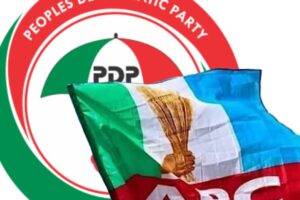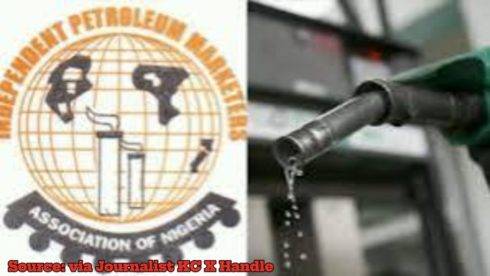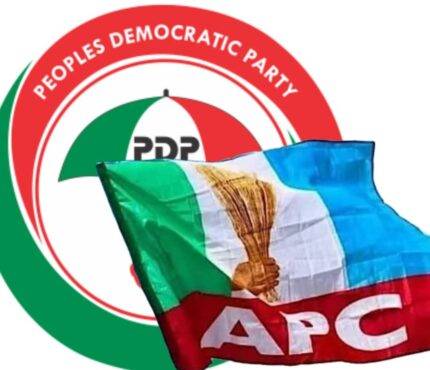The fuel scarcity crisis in Nigeria has taken a concerning turn as the Independent Petroleum Marketers Association of Nigeria (IPMAN) threatens to withdraw its services over the non-payment of ₦200 billion in bridging claims. This move by IPMAN, which has the backing of the association’s national leadership, could potentially exacerbate the already strained fuel supply situation across the country. The threat stems from the alleged debt owed by the Nigerian Midstream and Downstream Petroleum Regulatory Commission (NMDPRA), the government agency responsible for regulating the petroleum industry.
Mazi Oliver Okolo, the Unit Chairman and Spokesperson for IPMAN’s Aba Depot, has stated that the ₦200 billion debt represents unpaid bridging claims, which are reimbursements for the transportation and handling costs incurred by marketers in the distribution of petroleum products. The non-payment of these claims has put significant financial strain on the marketers, hampering their ability to operate effectively and efficiently in the fuel supply chain. IPMAN’s threat to withdraw services highlights the growing frustration among petrol marketers and underscores the urgent need for the government to address the root causes of the fuel scarcity crisis.
IPMAN Bridging Claims: A Long-Standing Issue Fueling Discontent
Bridging claims, which are essentially reimbursements for the transportation and handling costs incurred by marketers in the distribution of petroleum products, have been a long-standing issue in the Nigerian oil and gas industry. The non-payment of these claims has put significant financial strain on the marketers, hampering their ability to operate effectively and efficiently.
The IPMAN’s threat to withdraw services highlights the growing frustration among petrol marketers, who play a crucial role in ensuring the seamless distribution of fuel across the country. Failure to settle these claims not only jeopardizes the marketers’ businesses but also has far-reaching implications for the entire supply chain, potentially leading to further fuel shortages and economic disruptions.
IPMAN: Government’s Response and Efforts to Resolve the Crisis
The Nigerian government has acknowledged the fuel scarcity crisis and has been taking steps to address the situation. However, the IPMAN’s threat to withdraw services underscores the need for more proactive measures to address the root causes of the problem, including the prompt payment of bridging claims to petrol marketers.
Officials from the NMDPRA and other relevant government agencies have been engaged in negotiations with IPMAN representatives to find a resolution to the issue of unpaid bridging claims. Timely intervention and the settlement of these claims could be crucial in preventing further disruptions to the fuel supply chain and mitigating the impact of the fuel scarcity on consumers and businesses across the country.
IPMAN: Impact on Consumers and Businesses Amid Fuel Scarcity
The ongoing fuel scarcity has already taken a significant toll on consumers and businesses alike. Long queues at petrol stations, hiked transportation costs, and disruptions to daily activities have become a common sight in many parts of the country. If IPMAN follows through with its threat to withdraw services, the situation could escalate further, leading to even more severe consequences for the economy and the general public.
Businesses that rely heavily on transportation and logistics could face significant challenges, potentially leading to disruptions in supply chains, increased operational costs, and reduced productivity. Consumers, on the other hand, may face even higher prices for goods and services, as well as difficulties in accessing essential commodities and services that depend on reliable fuel supply.
IPMAN: Call for Transparency and Accountability in the Oil and Gas Sector
The IPMAN’s threat has reignited calls for greater transparency and accountability in the Nigerian oil and gas sector. Critics have long argued that the opaque nature of the industry and allegations of mismanagement have contributed to recurring issues such as fuel scarcity and the non-payment of bridging claims.
Stakeholders, including civil society organizations and industry experts, have urged the government to implement comprehensive reforms to enhance transparency, strengthen oversight mechanisms, and ensure the efficient management of resources in the oil and gas sector. Such measures could help address systemic issues and prevent similar crises from occurring in the future.
IPMAN: Collaborative Efforts and Long-Term Solutions
Resolving the fuel scarcity crisis and addressing the issue of unpaid bridging claims require a collaborative effort from all stakeholders, including the government, regulatory bodies, petrol marketers, and civil society organizations. Immediate measures, such as the prompt settlement of outstanding claims, could provide temporary relief, but long-term solutions are necessary to prevent future occurrences of similar crises.
Experts have advocated for comprehensive reforms in the Nigerian oil and gas sector, including the implementation of policies to promote transparency, accountability, and efficient resource management. Additionally, investments in infrastructure, such as refineries and storage facilities, could help reduce the country’s dependence on imported fuel and enhance domestic supply capabilities. By addressing the root causes of the fuel scarcity crisis, Nigeria can pave the way for a more sustainable and reliable energy sector that meets the needs of its citizens and supports economic growth.
Table of Contents
Discover more from OGM News NG
Subscribe to get the latest posts sent to your email.














